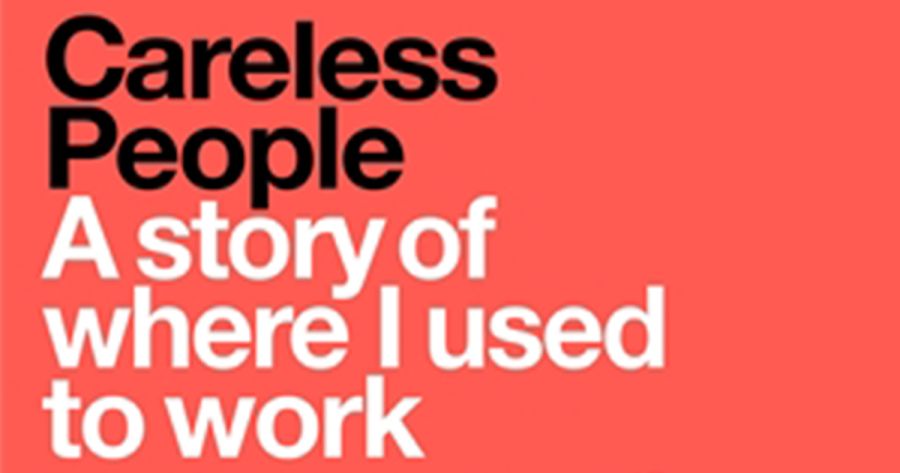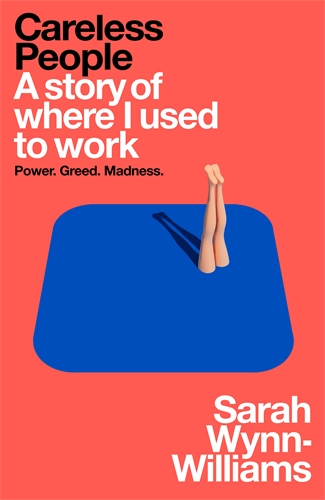
- Free Article: No
- Contents Category: Social Media
- Review Article: Yes
- Article Title: Found wanting
- Article Subtitle: Detailing Meta damage
- Online Only: No
- Custom Highlight Text:
Imagine having a performance review conducted by your employer while you were in a coma and on maternity leave and being told on your return to work that your responsiveness was found wanting. This anecdote is related straight-faced by Sarah Wynn-Williams in her whistleblowing account of the multinational technology giant Facebook. Based on the author’s seven-year tenure as Facebook’s Director of Global Public Policy, which ended in 2017, Careless People provides new insights into Facebook’s treatment of employees and users alike. As Wynn-Williams recalls: ‘A quick google search confirm[ed] my suspicions that you are not supposed to be given a performance review on your maternity leave. In fact, I understand that pushing someone to work during their maternity leave is against the law.’ A chilling picture is constructed of the human cost of the company’s lawless commitment to power, profit, and a galactic technocracy, the Metaverse.
- Book 1 Title: Careless People
- Book 1 Subtitle: A story of where I used to work
- Book 1 Biblio: Macmillan, $36.99 pb, 400 pp
- Book 1 Cover Small (400 x 600):

- Book 1 Cover (800 x 1200):

- Book 1 Readings Link: https://www.readings.com.au/product/9781035065936/untitled-memoir--anon--2025--9781035065936#rac:jokjjzr6ly9m
As is now well known, Meta is mining and selling its data for advertising purposes and its algorithm has long assisted in the campaigns of presidential and prime ministerial candidates. Former Facebook employees and whistleblowers, such as Frances Haugen, have warned governments that Facebook’s parent company, Meta, always puts revenue before public interest. Governments, including Australia’s, are slowly starting to take note and institute various social media legislation and age restrictions, however untested and controversial. Meanwhile, Wynn-Williams’s fly-on-the-wall account powerfully implicates its key actors, most notably Meta CEO Mark Zuckerberg and former Chief Operating Officer Sheryl Sandberg.
Wynn-Williams is an Aotearoa/New Zealand lawyer who started her career at the United Nations and moved to Facebook to make a ‘real difference’. Careless People offers an account of Zuckerberg’s life story, charting his development from an unworldly and naïve engineer, who apparently had a ‘social mission to make the world a more open and connected place’, to a narcissistic technocrat who enjoys performing as a ‘world leader at APEC, chairing the bubble-bath session with all the presidents and prime ministers, realising the extent to which he and his platform truly [are] king-makers and how he [will] outlast almost everyone there’. Wynn-Williams reveals that Zuckerberg was coached by his executive team before testifying to the US Congress to ensure that he did not admit that Facebook wrote its own censorship software ‘in collaboration’ with the Chinese Communist Party to secure its entry into the Chinese market.
 Mark Zuckerberg, 2019 (Anthony Quintano via Wikimedia Commons)
Mark Zuckerberg, 2019 (Anthony Quintano via Wikimedia Commons)
Such details very nearly did not make it into our public sphere. Meta went to great lengths to quash the publication of Careless People, instigating legal proceedings against Macmillan in 2024. However, when it resigned itself to the fact that the memoir would be published, Meta went into damage control and started contacting media outlets requesting preliminary copies of reviews. Ron Charles, renowned critic of The Washington Post, related that in his twenty-seven years of reviewing and editing ‘no company has ever done this with me’. Since the publication of Careless People coincided with Wynn-Williams’s participation in a US Senate judiciary subcommittee on crime and terrorism, Meta sought a gag order to prohibit her from testifying. Despite Meta’s attempts to prevent the publication of the memoir, Careless People has remained a New York Times bestseller and the attempted censorship has only had the effect of piquing public interest and escalating sales.
While laying bare Meta’s culture of exploitation and duplicity, Wynn-Williams also questions her own role, noting that she ‘watched hopelessly as they sucked up to authoritarian regimes like China’s and casually misled the public’. As a result, she has not escaped criticism from other ex-Facebook employees who point to her morally ambiguous part in the corporation’s international dealings. Another Facebook alumna, Sabhanaz Rashid Diya, has drawn attention to Wynn-Williams’s apparent complicity in corporate exploitation and her indifference towards Facebook’s role in the violation of human rights while she was working at the company. Among these violations, Facebook is accused of propagating hate speech in Myanmar.
The publication of Careless People coincides with a renewed interest in understanding the impact of social media, not just in the realm of electioneering and global politics, but through its pernicious targeting of young people when they are most vulnerable. Like many of my teacher colleagues, I have read Jonathan Haidt’s An Anxious Generation (2024) and his suggestion that increased access to smartphones and social media has contributed to the ‘great rewiring of childhood’ and an exponential rise in mental illness among adolescents. ‘And that’s why in 2012, which is the year, incidentally, that Facebook bought Instagram, online life changed,’ Haidt commented in an interview, ‘especially for girls, who flocked onto Instagram. And it was right after that when we first noticed the widespread upsurge in anxiety, depression and self-harm.’ Haidt’s account functions as a thought-provoking adjunct to Careless People and its revelation that Facebook ‘targeted thirteen-to-seventeen year-olds across its platforms, including Instagram, during moments of psychological vulnerability when they [expressed feeling] “worthless”, “insecure”, “stressed”, “defeated”, “anxious”, “stupid”, “useless” and “like a failure”.’ Writes Wynn-Williams: ‘To me, this kind of surveillance and monetisation of young teens’ sense of worthlessness feels like a concrete step toward the dystopian future Facebook’s critics had long-warned of.’
There are some hopeful signs that individuals, communities, and governments are pushing back against Meta’s global hegemony. The year 2025 is being heralded as the start of social media’s death, or at least its public downfall. A range of more ethical platforms (such as Bluesky and Pixelfed) are stepping into the breach. The Online Safety Amendment (Social Media Minimum Age) Act 2024 will test the extent of the Australian government’s regulatory powers in this landscape and there is an evident return to decentralised and more private forums, such as the quaint emailing of newsletters.
Indeed, in his own newsletter, artificial intelligence and tech educational specialist Leon Furze raised concerns about Meta’s new suite of data-collecting capabilities, developments which again suggest ‘Meta’s contempt for individual privacy’. Zuckerberg’s long-wished-for, centrally controlled digital galaxy of social media and messaging platforms, of which Facebook is only a facet, still has a concerning stranglehold on data. But Wynn-Williams’s Careless People is part of a growing attempt to expose the ‘real damage out in the world’ that Meta has caused, creating a small but powerful chink in the kingmaker’s armour.


Comments powered by CComment